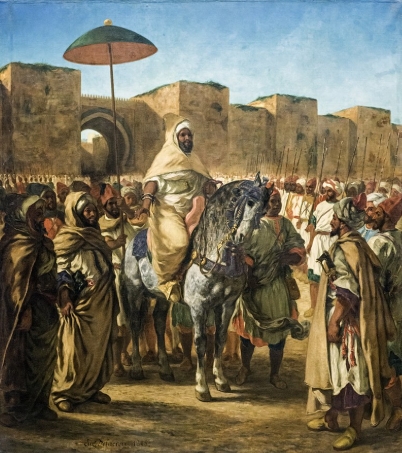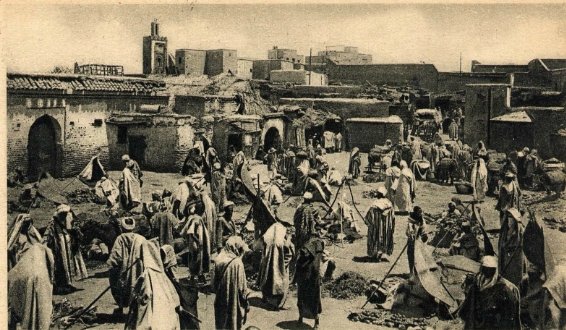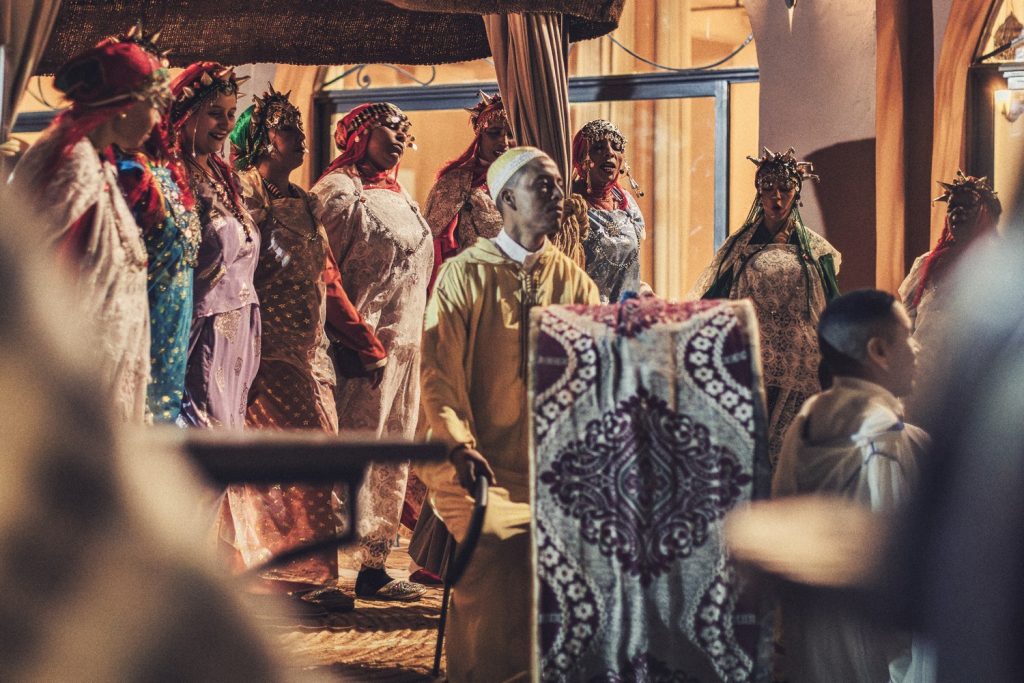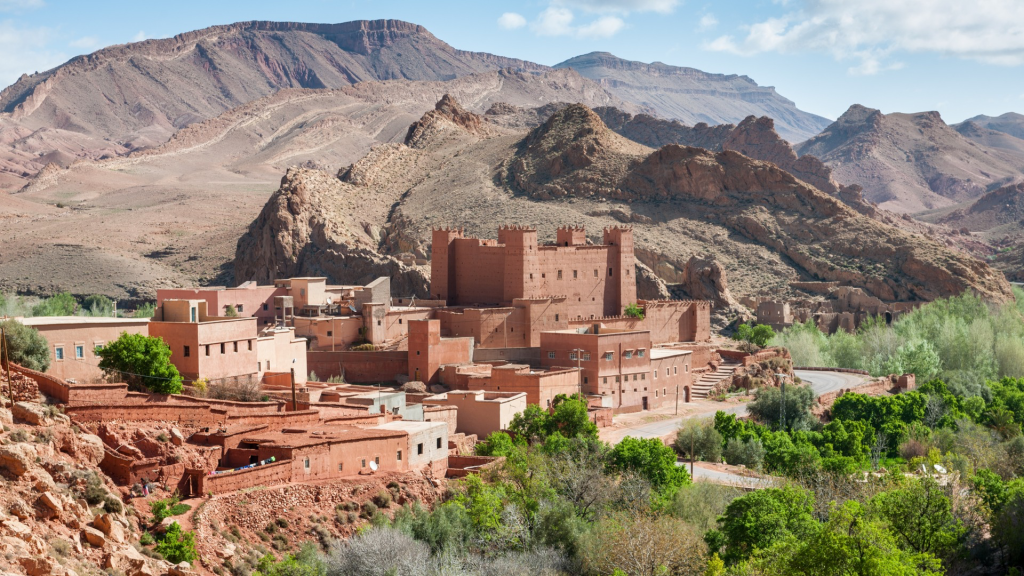The long history of Morocco
Two figures from the end of the 8ᵉ century remain emblematic in the Moroccan national story: Idriss I and his son Idriss II, founders of the Idrissid dynasty, said to have descended from Muhammad (Mohammed). The Idrissids are often presented as the first dynasty to lay the foundations of structured, state power in Morocco. In reality, it was not until the Almoravids, in the 11ᵉ century, that a centralised power controlled the entire territory. Dynastic sequencing should not, however, obscure the important chronological continuities. "Beyond the dynastic history, there are anthropological structures of power and there is a form of political model particular to Morocco, perhaps even to the Maghreb as a whole, in which not everything is the work of the dynasty, nor of a central state power. There is constant interaction with the populations that are subject or to be subjugated."
The Berber era
Two Berber dynasties, from the end of the 11ᵉ century to the beginning of the 13ᵉ century, the Almoravids and the Almohads, unified the Maghreb and the Iberian Peninsula. In the 1040s, the Berber leader Yahya ibn Ibrahim, with the help of Ibn Yasin, set about reforming the religious mores of the Berber populations.
Between 1070 and 1090, the Almoravids took control of the cities of present-day Morocco and al-Andalus, waging a jihad against the Christians. The religious reform carried out by the Almoravids was part of their allegiance to the Abbasid Caliph of Baghdad.
A capital, Marrakech, was founded in 1070, and a particularly emblematic ruler, Yusuf ibn Tashfin, reigned from 1061 to 1106 with his wife Zaynab Nefzaouia. A decentralised administration was put in place, with a transcontinental state structure that extended across the Straits of Gibraltar for the first time.
The 11ᵉ century marked a turning point in the history of the Maghreb: The Almoravids were the first to establish treaties with Pisa, Genoa, Venice, Marseille and Barcelona". The Almoravids were the first to establish treaties with Pisa, Genoa, Venice, Marseille and Barcelona."
It is in this context that the word Morocco appears. "The word Morocco means Marrakech. That's when we get into the habit of referring to a country by its capital."
The Almoravids declined in the 12ᵉ century, weakened by wars against the Christians of the Iberian Peninsula and against the Almohads, Berbers who rose up against the ruling dynasty.
The Almohads soon overthrew the Almoravids. Ibn Tumart was the religious reformer at their head.
In 1147, the Almohads seized Marrakesh, then almost all of present-day Morocco and Tunisia, and al-Andalus. They challenged the legitimacy of the Abbasid caliph and proclaimed the Almohad sovereign as caliph.
The religious reform of the Almohads was a return to the prophetic revelation of Muhammad, and had a strong messianic dimension. Fictional genealogies place Ibn Tumart and Abd al-Mumin, his first successor, in the line of Ali, Muhammad's son-in-law and cousin.
The Almohad Empire introduced a new, more centralised system of provincial administration.
History according to the Marinids
In the 13ᵉ century, the Almohads declined in favour of the Marinids, a dynasty also of Berber origin, who seized Marrakesh in 1269 and henceforth exercised their power over Morocco from their capital, Fez.
The term "sultan" came into general use during the Marinid period. Sultan Abu al-Hasan Ali ben Uthman, nicknamed the "Black Sultan" because of his skin colour, was a central figure of the Marinid period. His reign (1331-1348) marked the apogee of the dynasty, but he failed to unify the Maghreb once again, despite his desire to revive an empire through arms and conquest, both in Spain and in present-day Tunisia.
Unlike the two previous dynasties, the Marinids did not mobilise a religious project to legitimise their power. On the contrary, according to Yassir Benhima : "It was almost by political expediency that this dynasty came to power. They were going to build other ways of legitimising their authority and they had the idea of writing this history. Ibn Khaldun, a thinker and historian of the late 14ᵉ century, contributed in particular to the structuring of this great national narrative.
The Marinids gradually declined from 1348, weakened by the Black Death and periods of great political instability. They were succeeded by the Wattassids in 1472.








